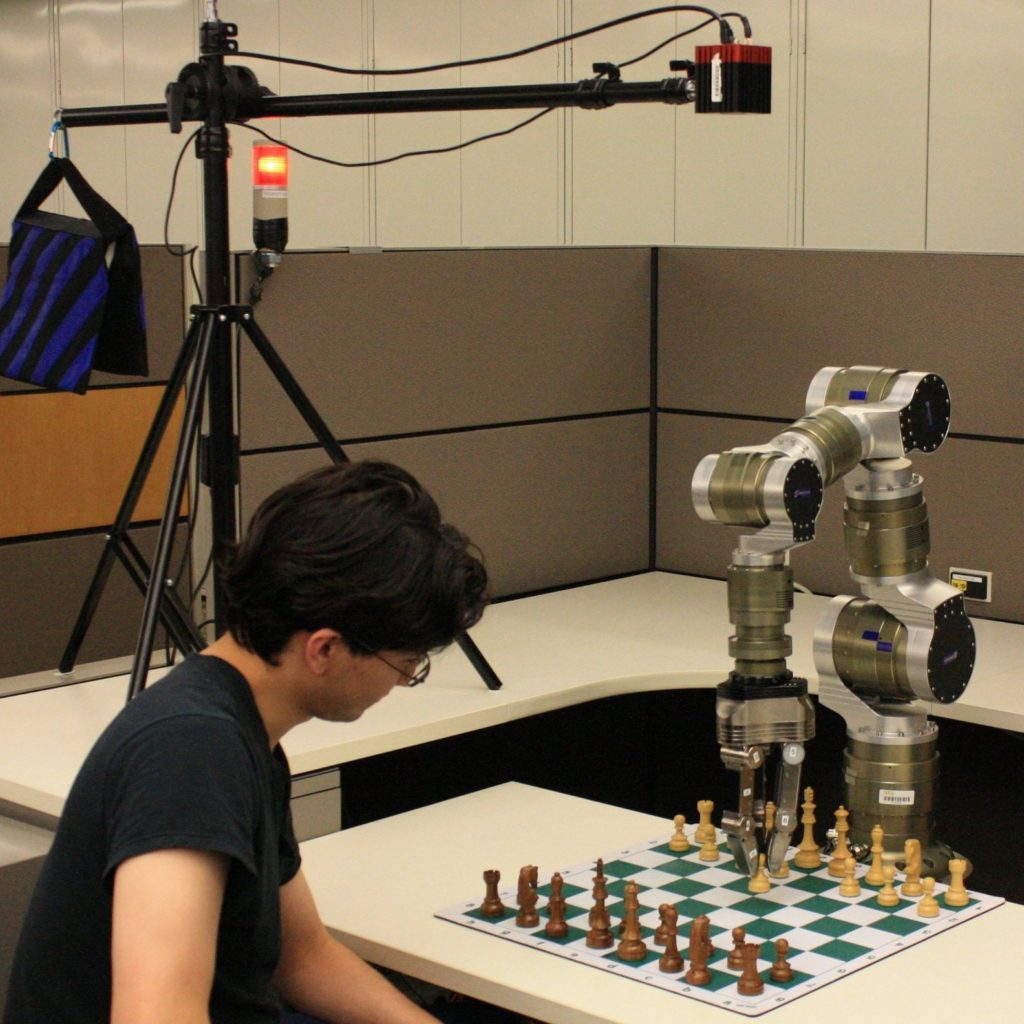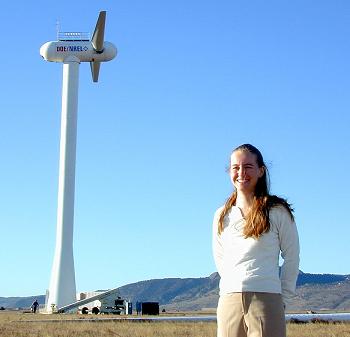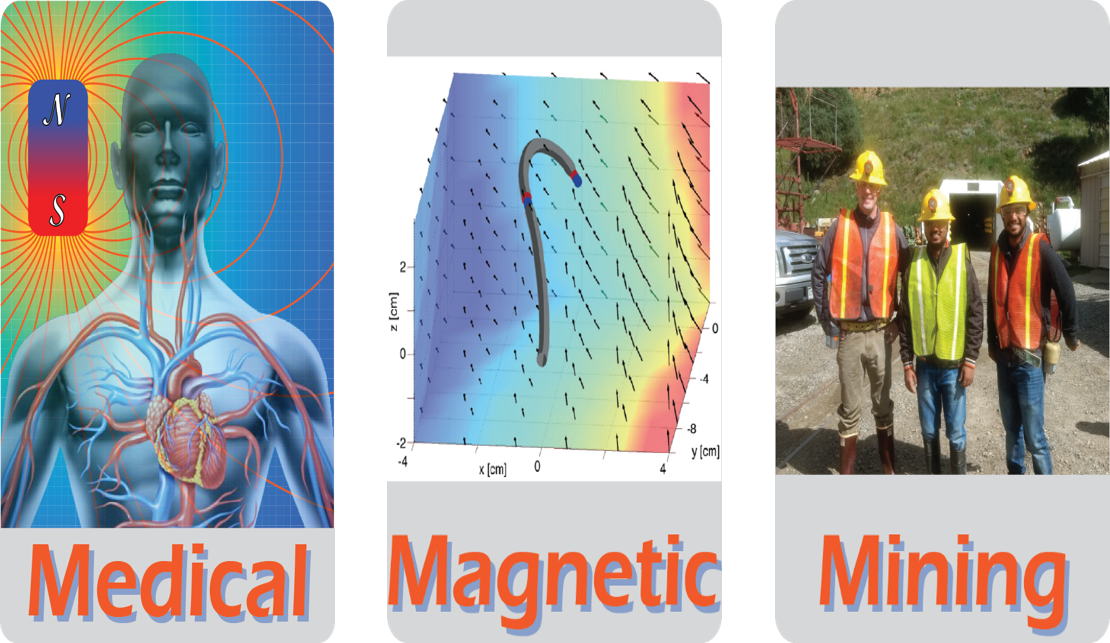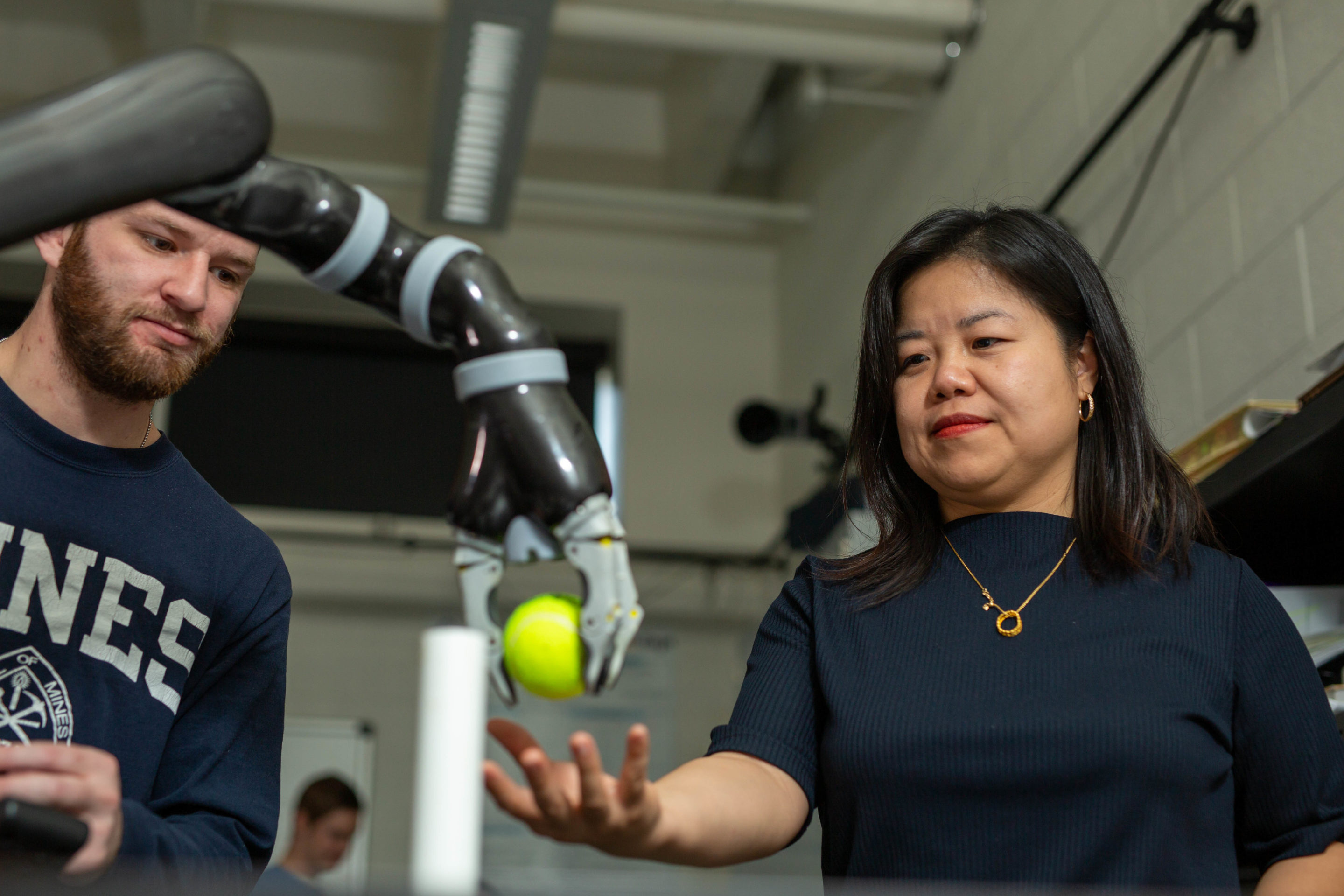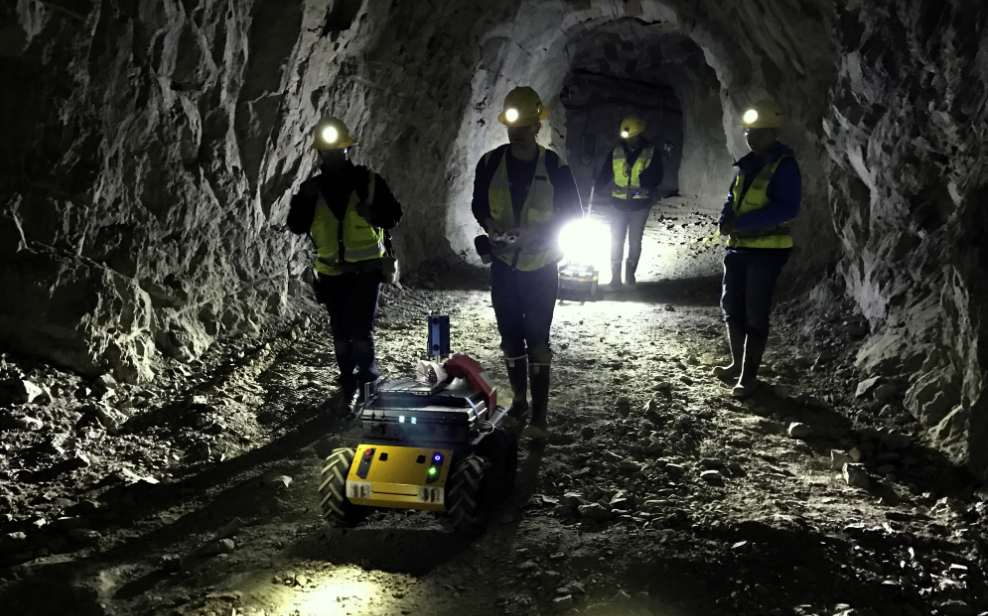Research
Robotics and Automation applies innovative technologies to problems in robotics, robot-human interaction, manufacturing and health care. Our research ranges from artificial intelligence to autonomous and remotely operated robot technologies, including applications in additive manufacturing, underground mine safety, magnetic guidance for placement of probes for deep brain stimulation and remote telesurgery. We use both high-performance computational and physical prototyping methods to advance research in these areas.
The NAPPLab performs research at the intersections of aerial robotics, multi-robot systems, and active perception. One of the most common tasks that robots perform is to move about to observe and collect information about the world. What camera views provide the best information? How do observations from sensors relate to a robots’ ability to navigate a cluttered environment? We study fundamental problems related to coordination and planning for perception and information gathering while also developing methods for applications such as videography (e.g. filming team sports), infrastructure inspection, search and rescue, and mine safety. Learn More
The Dynamic Automata Lab conducts research in Robotics, Artificial Intelligence, and Systems. Our goal is to create robots that autonomously perform complex tasks, adapt to new environments, and are easy to program. This work integrates symbolic reasoning, computational geometry, and theoretical computer science. Learn more.
Pervasive Computing Systems Research Group
The Pervasive Computing Systems (PeCS) research group, directed by Professor Qi Han of the Department of Computer Science at Colorado School of Mines, conducts research and development in various areas within the realm of integrated computer and network systems. The mission of PeCS is to design algorithms, develop techniques, and build systems to enable pervasive and mobile computing applications. PeCS members interests range from algorithms to systems, from design and experimentation to deployment and applications.
Dr. Kevin Moore
Dr. Moore’s general interests are in the area of control systems, with an emphasis on industrial applications, intelligent control theory, and autonomous systems, including mobile robotics. His research has involved (i) developing new theoretical results and applications in the areas of iterative learning control and discrete repetitive processes; (ii) the application of control theory, including intelligent control, to material processing, including the automated control of the gas-metal arc welding process, feedback control of the cupola furnace, and multivariable control of the aluminum reduction process; and (iii) design, development, and control of autonomous ground vehicles, including the commercialization of a surveillance robot used in military and civilian applications. More recently his efforts have been focused on the coordination and control of multi-agent systems, with applications to unmanned air and ground vehicles, mining automation, and building efficiency.
M3 Robotics
We focus on turning applied and fundamental research into complex system design to support both medical and field applications. Projects range from continuum robotic manipulation for neurosurgery to fundamental magnetic manipulation research to autonomous navigation in harsh environments. Learn More

Dr. Yangming Shi,
Yangming Research Group
Our mission is to develop data-driven solutions to improve human performance and augment human capabilities (physical and mental). We conduct research in areas that include Virtual Reality (VR)/Augmented Reality (AR), Human-centered Artificial intelligence(AI), and human factors in the context of civil infrastructure systems. Learn More
MIRRORLab
The Mines Interactive Robotics Research Lab develops intelligent agents designed to interact naturally with human teammates. To do so, they seek to combine computational methods and insights from artificial intelligence, cognitive science, and human-robot interaction with robotic and augmented reality technologies. Learn More
Intelligent Robotics and Systems Lab
The goal of the Intelligent Robotics and Systems Laboratory is to enable robots to deal with problems and adapt to changes in tasks and environments with little to no human control or intervention. Learn More

